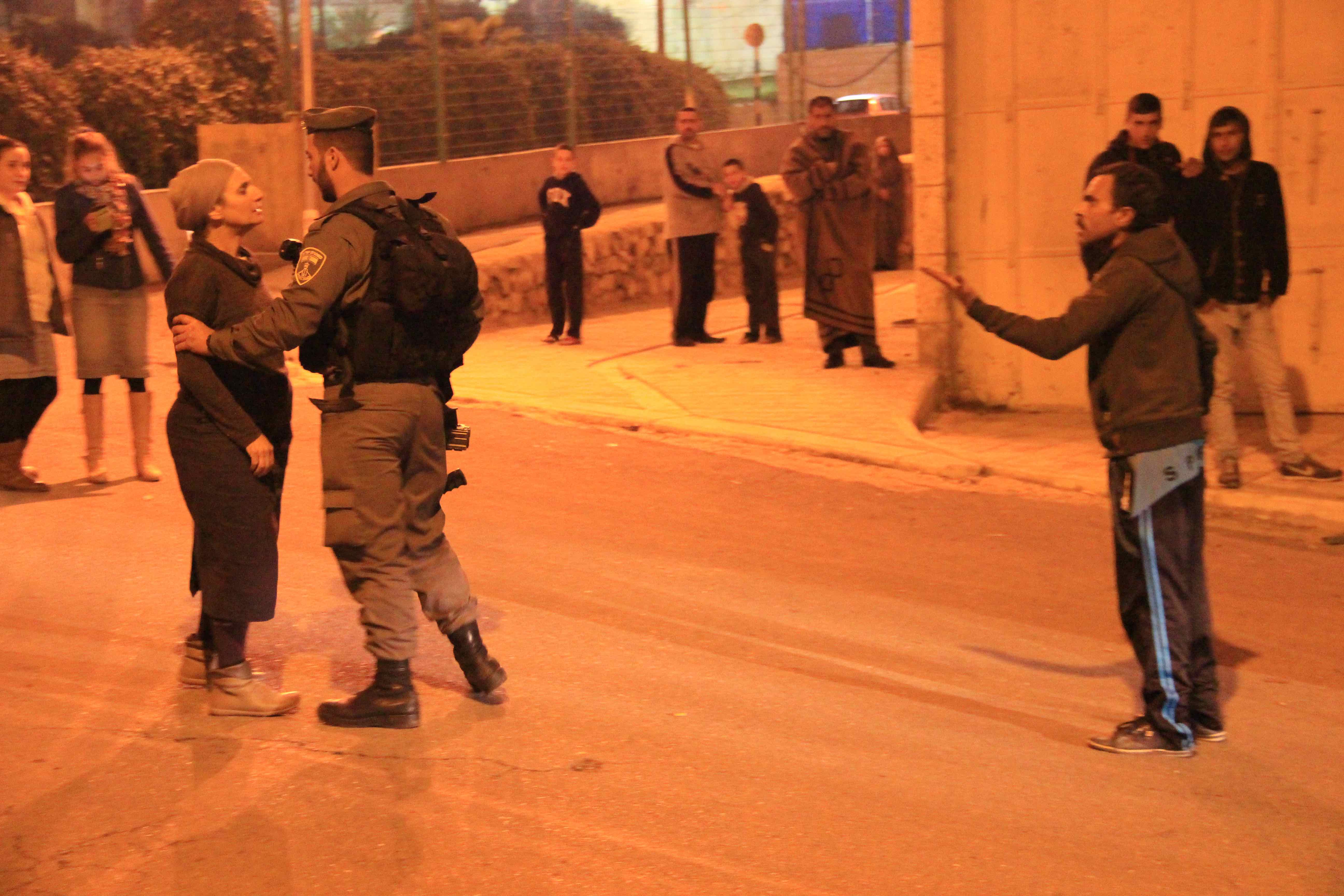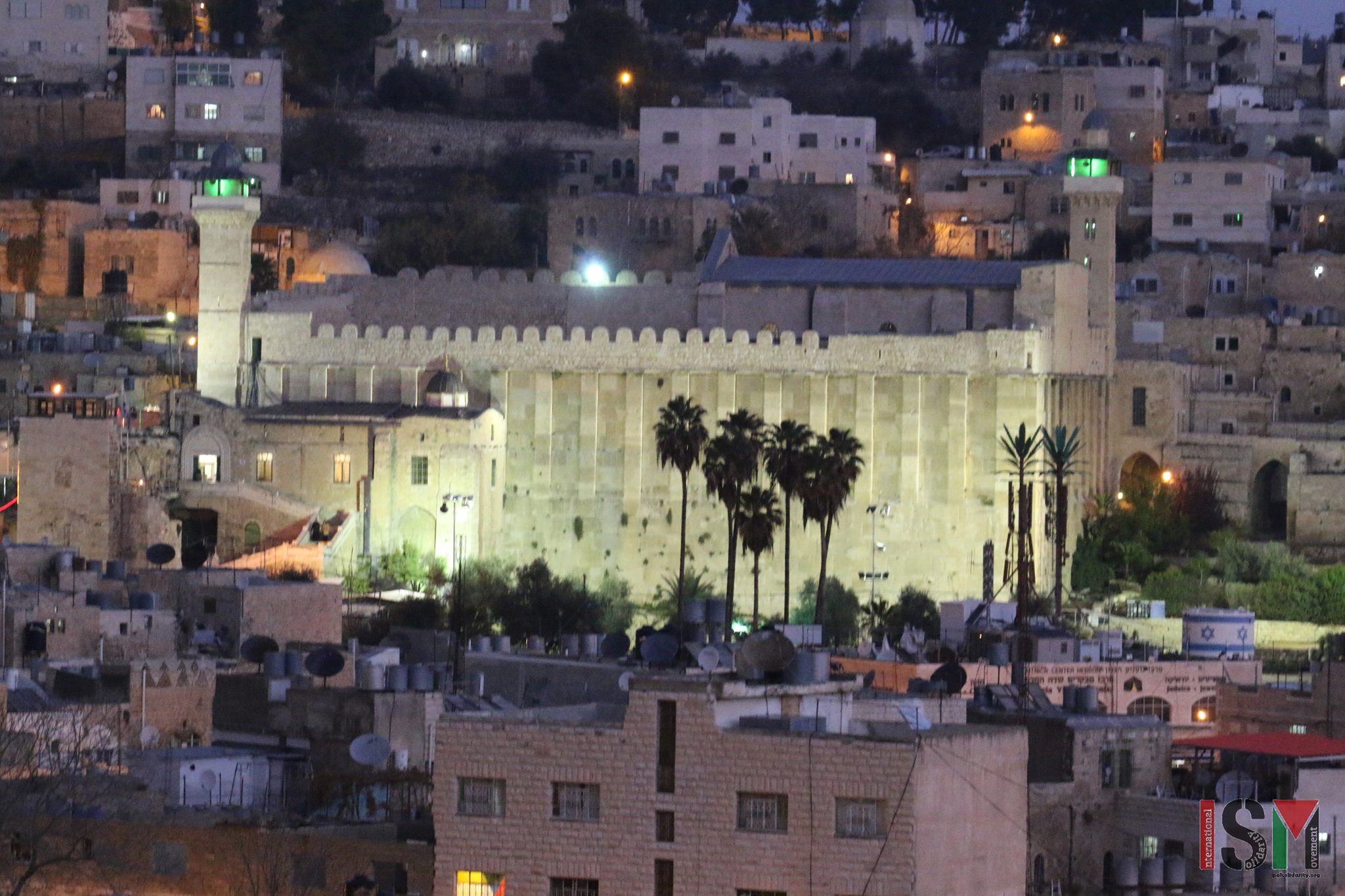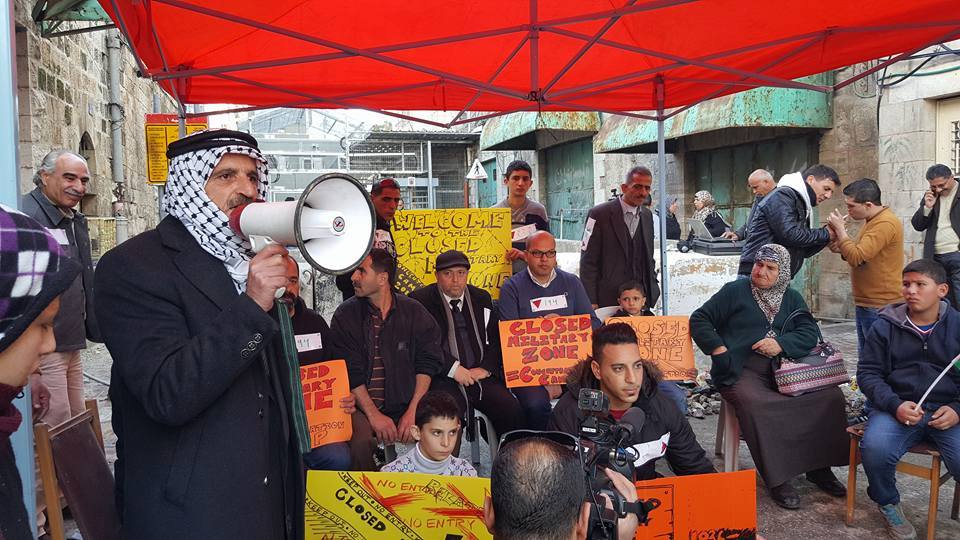Tag: Shuhada Street
-
Infamous settler Anat Cohen disrupts peaceful commemoration
27th February 2016 | International Solidarity Movement, al-Khalil team | Hebron, occupied Palestine On Wednesday evening, 24th February 2015, a commemoration for the victims of the 1994 Ibrahimi Mosque massacre in occupied al-Khalil (Hebron), was interrupted by infamous settlers attacking the group of Palestinians and internationals peacefully remembering those killed and the implications of this…
-
22 years after the Ibrahimi mosque massacre, Palestinians still suffer consequences
25th February 2016 | International Solidarity Movement, al-Khalil team | Hebron, occupied Palestine On the 25th of February 1994, a US citizen residing in the illegal Kiryat Arba settlement entered the Ibrahimi mosque in the early morning during the month of Ramadan. Baruch Goldstein, dressed in his army uniform, opened fire on the Palestinians that…
-
Ongoing sit-in protest at Shuhada Street checkpoint in Occupied Hebron
18th January 2016 | International Solidarity Movement, al-Khalil Team | al-Khalil, occupied Palestine Today marks day 12 of an ongoing sit-in protest at check point 56 at the entrance to Shuhada Street and the Israeli occupied part of the city. The peaceful protest began on 7th January when a local woman, Wafa’ Sharabati, 38, was arrested…



